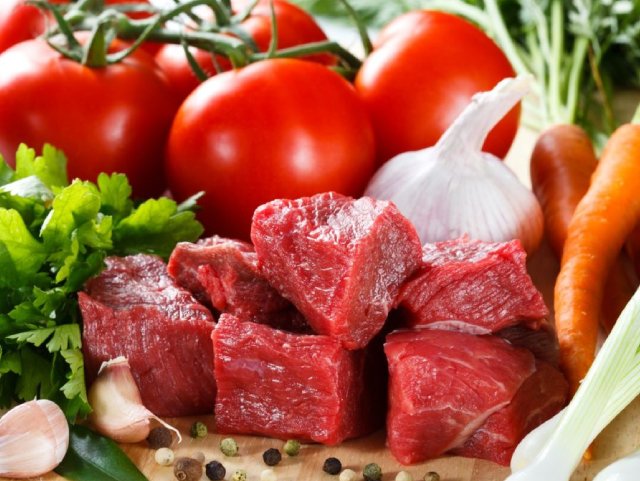When it comes to food, nutrition and diet related information, the science is constantly changing. Many of us cling onto our hard-held beliefs, even though research and data prove otherwise. Read on, to differentiate fact from falsehood.
This article has been inspired by a disturbing mental disorder which is becoming increasingly prevalent. It is called Orthorexia Nervosa, and it is not to be confused with Anorexia. It is defined as an unhealthy obsession with healthy eating, which ironically leads to physical and emotional deterioration. The notion of replacing food with supplements, taking enemas to clean out “toxins” and eliminating entire food groups to attain health nirvana, is twisted and wrong. Over and over again, doctors are meeting patients who are shunning medication in their unfounded belief that all illnesses are caused by food and can be treated by adopting dietary modification alone. I have compiled a list of the top 20 worst health tips I have ever received in my life.
1. All calories are the same
Believing that all calories are the same is a major reason why overweight people have such a hard time losing weight, despite keeping an obsessive count of every calorie that goes into their body. A hundred calories of sugar are not the same as a hundred calories of vegetable. Different foods have a different metabolic impact on the body. They affect our hormones in different ways, and play a major role in controlling the brain centres responsible for hunger and craving. Food also differs in how quickly they are digested and metabolized by the body. For instance, calories from protein foods and whole grains are less fattening than calories contained in carbs and fat. Therefore, calorie counting alone is an outdated concept in dieting.
2. Eating sugar will give you diabetes
Wrong again! The tendency to develop diabetes is mostly hereditary. Obesity, hormonal imbalance, chronic stress and certain medications can make you prone to developing diabetes. While excessive sugar can lead to obesity and insulin resistance, eating sugar alone will not cause diabetes, as long as you keep your weight in check and have an active lifestyle.
3. All fat is bad for you
Fats are considered an essential nutrient, and your body cannot survive, much less flourish, if you eliminate all fat from your diet. Several vitamins, like Vitamin A,D,E and K are fat soluble vitamins. Your body cannot absorb these vitamins from your food, or produce them on their own, without dietary fat. Saturated fats, like the one found in animal fat is considered bad fat. However, polyunsaturated fat (PUFA) and essential fatty acids (EFA) are the good fat. PUFAs in fact help in keeping cholesterol and obesity in check. Our body needs EFA to produce hormones and for the healthy functioning of nerves.
4. A vegetarian diet is healthier
This is not entirely true. While you can gain sufficient quantities of protein, iron and calcium from a vegetarian diet, you will have to work out your nutritional balance very carefully. There is only so much beans, nuts and broccoli one can eat in a day! A vegan diet is inherently deficient in Vitamin B12 and Vitamin D. So if you are planning to switch to a vegetarian lifestyle, I would suggest the lacto-ovo-vegetarian diet (which includes eggs and dairy) over a vegan lifestyle. A vegan diet can in fact lead to several nutritional deficiencies in growing children and adolescent girls. They will always have to rely on protein and vitamin supplements to ensure a complete and balanced diet.
5. Eggs are bad for you
Eggs have had a bad reputation when it comes to heart disease and obesity. It is in fact true, that the yolk of the egg is high in cholesterol. However, not all cholesterol is bad cholesterol. Your body produces it own cholesterol and the production increases if your diet is high in saturated fat. Cholesterol is an essential nutrient which is vital for the functioning of every cell in the body. Various studies have proven several times over that eggs do not have a detrimental effect on blood cholesterol levels. Eggs, like milk, are considered as “complete food” due to their nutritional value. Eggs contain all the 9 essential amino acids. It is also rich in Vitamin B & D, antioxidants as well as several trace vitamins and minerals.
6. Milk increases mucus production
There is no clear evidence on this. A lot of people report that mucus production increases with the intake of dairy or dairy products during a cold. Although drinking milk may make your saliva and phlegm slightly thicker, it does not cause your body to make more phlegm. An Australian study did not find any significant correlation between milk consumption and nasal discharge, phlegm, congestion or Asthma.
7. Natural sweeteners are healthier than regular sugar
Natural sweeteners include honey, maple syrup, high fructose corn syrup, cane juice, palm sugar, beet sugar and molasses, to name a few. Although they are marked as the ‘healthier’ alternative, they have the same effects on our body as regular sugar. Sweeteners can increase your appetite and your craving for more sugar. Some sweeteners may be genetically modified. Some others may not taste as sweet, but are just as high on the glycemic index. For instance, brown sugar is just as bad for you as white sugar. Too much sugar of any kind, can lead to insulin resistance, obesity and all the chronic ailments that are associated with it. Most people do not recognise hidden sources of sugar, like salad dressings, juices, cereal bars and bread. The key is to moderate your sugar intake, and recognize food items that contain sugar, though you may not be able to taste it.
8. Microwaving your food will kill all its nutrients and cause cancer
For years, various food bloggers have trashed the concept of ‘zapping’ food items instead of cooking them. These ovens use microwave radiation to heat food molecules very quickly. The amount of radiation generated is miniscule and is not sufficient to cause deleterious health effects like cancer or infertility. As for destroying essential nutrients, any kind of heating, cooking or boiling can change the chemical structure of the proteins and nutrients in our food.
9. Raw food is more nutritious than cooked food
While it is true that cooking can break down your food by altering its chemical structure, this may not be a bad thing. Adding salt to food actually increases its nutritional value. Ketchup has greater concentration of the antioxidant lycopene, when compared to raw tomatoes. Cooking breaks down fiber making it easier for our body to digest. Cooking your food will also kill harmful pathogens, making your food safer. So while a raw food diet has its advantages, cooking provides a lot of benefits as well.
10. Mushrooms are a good source of Vitamin B12
Since mushrooms are technically not a plant, but a fungus, this has lead to the myth that mushrooms are loaded with Vitamin B12. Actually Vitamin B12 is almost exclusively found in animal sources alone. And this includes eggs, dairy and seafood. So if you are a vegan, you will still need to rely on supplements and fortified food to avoid nutritional deficiencies.
11. Skipping meals can help you lose weight
On the contrary, it is actually the opposite. Skipping meals not only lowers your energy and makes you cranky, it also slows down your metabolism in an attempt to conserve energy. Intermittent fasting does have its benefits, but skipping meals on a regular basis will lead to cravings and binge eating. Skipping breakfast can be particularly detrimental. Research has shown that those who skip breakfast have a higher body mass compared to those who don’t.
12. You must periodically cleanse and detox your body to increase longevity
Your body already has highly sophisticated detoxing machinery in place. Your liver, kidneys, lungs, colon and even your skin is capable for removing toxins and carcinogens from your body. It is important to include lots of fruits and vegetables in your diet, preferably in its natural, unpeeled and fibrous state. You do not need to get periodic enemas to detox your body. But if your diet mainly consists of carbs, meat, refined & processed food, then it may be a good idea to have fruit juices or smoothies on a daily basis, to ensure a more balanced meal.
13. Cravings are a sign of nutritional deficiency
You may have an urge to eat when you are hungry and drink when you are dehydrated. But your body cannot make you crave for brazil nuts if you’re selenium deficient! There are two kinds of hunger and craving – 1) Physiological, and 2) Emotional or Reward-seeking. Most cravings are driven by stress, habit and a need for pleasure and release. There is no credible evidence that our cravings are an indication of nutritional deficiencies.
14. Organic food is more nutritious than regular food
Organic food has lower pesticide content and follow good ethos of crop rotation and is generally better for our ecology. However this does not translate into a higher nutritional quality over regular food.
15. Coffee is bad for you
Coffee is loaded with antioxidants, Vitamin B, folate, manganese and magnesium. It has been found to protect against diabetes, mouth and liver cancer, asthma and Alzheimer’s disease. Caffeine has anti-depressant and pain-relieving properties as well. How much caffeine your body can handle varies from person to person. However, most scientific studies indicate that mild to moderate consumption of black coffee can actually be beneficial to your health.
16. Eating too much protein is bad for your kidneys
Patients who suffer from kidney disease must limit their protein intake. But this does not mean that proteins will damage your kidneys. Neither does dietary protein leech the calcium out of your bones. Protein is an essential macronutrient and you can have 0.5-1.5 grams of protein for every kilo of your body weight on a daily basis. Your protein intake must be based on your age, body weight and activity level.
17. Always chose low fat food as the healthier option
When fat is taken out of food, it often alters the taste for the worse. In order to make it palatable, manufacturers often add sugar, salt, starched or other processed ingredients, which take away some of the benefits of having a low-fat dish.
18. If you’re pregnant, you must eat for two.
This will only make you gain too much weight and you could end up with back problems, a sluggish thyroid, high blood pressure, diabetes or an overweight baby. You only need an additional 350 calories a day in your second trimester, and 450 calories a day in your last trimester. You will need to eat more if you’re carrying twins.
19. Green tea can help you lose weight
This is only partially true. The weight loss benefits of green tea are not really significant. Most studies that demonstrated fat and calorie-burning benefits used capsules of green tea extract and not regular green tea. Also, you need to drink 4-7 cups a day (of the decaffeinated variety) to start seeing a reduction in your abdominal girth. This is assuming that you’ve cleaned up your diet and joined a gym! Do not add sweeteners to your green tea.
20. Frozen and canned produce are lower in nutritional value
Frozen foods may not taste as great, but they are not nutritionally inferior to fresh fruits and vegetables. In fact, fresh cut produce is flash frozen to preserve their nutritional value. When it comes to purchasing fresh produce, there is a lag of several days from the time they were picked to the time they reach your plates. Some of this produce has been transported across cities and countries. During this time, your food loses must of its nutrients. If you want the best produce, you must purchase them at the local farmer’s market where fruits and vegetables are often picked the same day.




